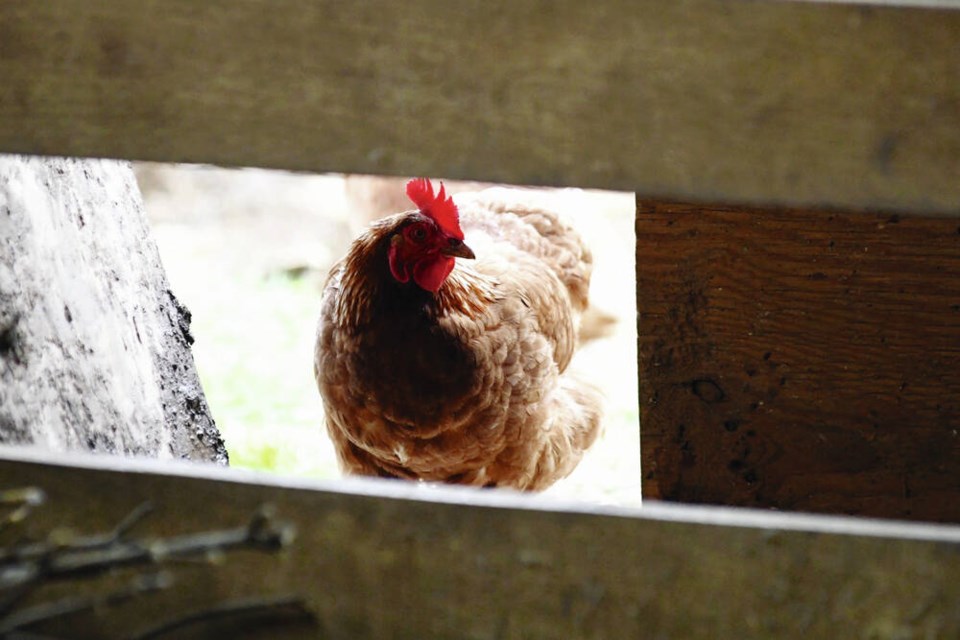A second case of avian flu has been detected in the Island region.
A small poultry flock tested positive for the highly pathogenic or disease-causing H5N1 avian influenza virus on Gabriola Island, the Canadian Food Inspection Agency said.
The provincial Agriculture Ministry said the infected farm was placed under quarantine by the CFIA while the ministry notified producers within a 10-kilometre radius about the positive test results.
In a statement, the province said owners of small or backyard flocks are urged to continue to be vigilant and take preventative measures, including eliminating or reducing opportunities for poultry to encounter wild birds, reducing human access to the flock and increasing sanitization of all things when entering areas where flocks are housed.
The first confirmed case of H5N1 in B.C. poultry was at a commercial producer in the Regional District of North Okanagan in mid-April.
The first Island case was detected in the Comox Valley on May 10.
In a social-media post, Gabriola’s Somerset Farm noted it was not the source of the outbreak, but urged people to co-operate with the CFIA. “We will be quarantined until a control zone is set. For now you are still able to come to the shop for meat purchases but not eggs,” the post said, adding the farm is trying to work out what to do with its incoming shipment of young turkeys that were destined for the Thanksgiving table this fall.
To date, 16 outbreaks have been confirmed across the province, affecting about 159,000 birds.
Across the country, about two million birds have been affected since the first case was detected in December 2021 in Newfoundland and Labrador.
Avian flu can be be transmitted directly from bird to bird through secretions and feces, and indirectly through human movement, contaminated feed, water and equipment.
The disease is federally regulated and the CFIA leads the investigation and response, with provincial support for testing, mapping, surveillance and disposal.
The public can report dead wild birds to the Wild Bird Mortality Investigation Program toll‑free hotline at 1-866-431-2473.
• To comment on this article, write a letter to the editor: [email protected]



